Writers, poets and intellectuals have always felt the pressure of censorship in Iran. [Read part one here.]
Sepideh Jodeyri, an exiled Iranian poet, talks to Fair Observer about the history of literary censorship in Iran, as well as her personal experience with censors. She remembers the names of writers and poets who have lost their lives in the pursuit of freedom of expression, and addresses the difficulties of being a woman within the strict societal norms of the Islamic Republic. Her support for Mir-Hossein Mousavi before and after the 2009 presidential election has put the wellbeing of her family in danger. After accepting a PEN guest writer position in Italy, she now lives in Prague, Czech Republic.
Jodeyri’s poetry has been translated into English, Swedish, Dutch, Italian, Czech and Kurdish. She will be holding readings at the School of Oriental and African Studies, University of London, this September.
Anna Pivovarchuk: Were you scared?
Sepideh Jodeyri: In Iran, families used to forbid many things for girls. But nowadays people are more open-minded. During Mohammad Khatami’s first term, the chief of the book department in the Ministry of Culture and Islamic Guidance was Khosrow Talebzadeh, who was very open-minded. My first book was published in that period, without any censorship. Talebzadeh was against censoring books. Surprisingly, many things that were previously forbidden in Iran, such as erotic topics, were published without a word even censored.
Pivovarchuk: What surprised you the most? What were you happy to see on the bookshelf? Were there forbidden classics that were now available?
Jodeyri: Oh yes, for example, I remember that I found the translation of a book by Romain Gary, La vie devant soi (The Life Before Us). You know, he wrote under a pseudonym: Émile Ajar. The book was full of forbidden words, but not even one word was censored.
Today, however, even some classic Persian poetry is censored in Iran. Nizami, an early Persian poet, wrote about Khosrow Parviz, who was an ancient king of Iran, and he loved a woman. It is a story, of course. The woman was a lover of another man and the other man was not a king. The man was poor. Such stuff is censored in Iran because it relates to love and political issues.
Pivovarchuk: You said things got better under Khatami? Were these classics allowed under him?
Jodeyri: Everything was allowed in his first term, but during the second period things changed. There was pressure on him. The Minister of Culture and Islamic Guidance in the first period was Ata’ollah Mohajerani, but then he was replaced by Ahmad Masjed-Jamei. The previous minister now lives in London, I think, but the second minster still lives in Iran. The new minister was not very close-minded, though he was more conservative than the previous one. Talebzadeh believed that books shouldn’t be censored. He was of the view that if people felt a book had material that should be censored, then they should be able to choose for themselves. We were surprised to find people like him in this position following the Islamic Revolution, but it was only a short period as he was replaced.
For me, writing for my people is more important. I want to be read by my people. I have an Iranian feeling in my poetry. Of course, people in the West will understand it, but there are certain things that only Iranian people have felt and experienced. I write for them.
During Mahmoud Ahmadinejad’s presidency, more censorship was imposed. I think he wanted to go back to Ayatollah Khomeini’s period. I think the “darkest” time of Iran was under Khomeini. There was a movie made by Andrzej Wajda about the Katyn massacre, when thousands of Polish officers were killed by Joseph Stalin’s NKVD. During Khomeini’s period, something similar happened when people were killed on the basis of their beliefs. I was a little child at that time but, because my parents were political, I remember many of their friends were killed. Many immigrated to other countries. When it came to cultural issues it was a very bad time. Everything was censored.
Ahmadinejad wanted to return to this period but he couldn’t because now we have the Internet and satellites. Today, everything that happens in Iran will be covered by the media. So because of this, his period was not as bad as it was under Khomeini, but it was worse than under Khatami.
Pivovarchuk: You immigrated to Italy and now live in Prague. What made you finally decide to leave Iran considering you lived there for so long?
Jodeyri: We immigrated to Italy during the second term of Ahmadinejad’s presidency. The situation of the opposition was not good. Ahmadinejad thought he should be the president and not Mir-Hossein Mousavi. Of course we supported Mousavi. I was the first poet in Iran to write a long statement in this regard before the election. I invited other Iranian poets to vote for Mousavi and spelled the reasons for my stated position. This statement was published in various journals that supported Mousavi. But because Ahmadinejad won the rigged election, we weren’t safe. Moreover, my husband is a writer and journalist and, at the time, he was deputy editor-in-chief of a news website that supported Mousavi.
Around this time, our son was born but we continued the protest against Ahmadinejad. The international PEN society invited us to Italy to become guest writers for two years. Then my husband found a job in Prague at Radio Liberty. After two years in Italy, we moved to Prague and have lived there for over a year. Although, I prefer a city like London because it is multicultural. In Prague, we have language problems and feel like strangers.
Pivovarchuk: In Soviet Russia, where censorship was institutional, we had an underground printing press. Does that exist in Iran?
Jodeyri: As previously mentioned, my first book of poetry was published during the first period of Khatami’s presidency and it wasn’t censored. When all the issues were sold, the publisher wanted to release a second publication, but the book was forbidden because the minister of culture had changed. So I republished it underground. It was in print but I did not sell it, exactly. I gave out some 200 issues of the second publication.
Today, people publish everything online, so poets in Iran find a new way to fight censorship. They publish forbidden writings on their websites. This is another kind of underground publication. There is a book of poetry I wrote while in exile and I sent it to a friend who is a publisher in Iran. He said he can publish it in small cities where they don’t know my name. But in Tehran it is impossible. However, they can publish it there and distribute the book to other cities. But even if they cannot do so, I can always publish it online. Though when something is free, people don’t always read it.
Pivovarchuk: Do you think less people read free things?
Jodeyri: Yes, of course! When you do not pay, you think it’s not very important. But this is a way of fighting censorship in Iran by publishing online.
Pivovarchuk: But then how does one make a living?
Jodeyri: I was a journalist too, so I could earn my living. I wrote for journals and earned money. For the books that were published in Iran, I was paid but not much. No author in Iran can live by only writing books. I don’t know what the situation is like in other countries. Poets and writers deal with different subjects. Some of them write on art and not everyone can understand it. They become well-known writers and poets but not best sellers. We don’t know anyone like J. K. Rowling, but we have some authors in Iran who write romance novels and these are very popular, but it might not be of the best quality. However, people like it and they earn good money from these books.
Pivovarchuk: Do you think censorship is sustainable with the advent of the Internet? How long can the government continue with censorship?
Jodeyri: It’s an issue. But you see, I think they are frightened of poets. I think they remember the Shah’s rule when poets inspired antigovernment movements. So they are skeptical of new poets as well. They are frightened not only of books, but are also wary of poetry sessions. The government has banned some poetry sessions in Iran. There are some bookshops that serve coffee and poets used to gather there and discuss. But after a few months, these shops were closed by the government during Ahmadinejad’s era.
Pivovarchuk: The new culture minister said that under today’s law, even the Qur’an would be censored.
Jodeyri: Yes, I think so. If we speak about God in our poetry it is forbidden. They think that only if revolutionary poets say something about God, then it is a good thing. But if I say something, which is not harmful but it is about God, it is presumed I am saying something that is an insult.
There is a method of censorship today in Iran whereby government officials only search for words. They want publishers to send a PDF version of a book and they search for particular words such as “God,” “kiss,” “lips,” “body” and so on. And they will censor the whole poem or story because of these words.
Nowadays, many Iranian poets publish their poetry on Facebook and I do so as well. As exiled poets whose writings are forbidden in Iran, we use Facebook as a media for ourselves.
Pivovarchuk: What was the reason behind the censoring of your book? You said you couldn’t republish it.
Jodeyri: It was because some poems were erotic and some had the word God. It also happened to another book of mine that was published in Iran after I emigrated. They censored several poems from it. Around 20 pages of the book were completely deleted. So, the book was not harmful anymore and the minister of culture gave us permission to publish. But after just two weeks, the minster of intelligence ordered the publisher to stop distributing the book. The stated reason was that it was written by me. The book was not considered harmful but, because authorities had a problem with us, they banned it.
Pivovarchuk: Do you publish in the West?
Jodeyri: Some of my poetry and short stories have been printed in Persian by an exiled publisher in Paris. My poems were translated into English, Swedish, Dutch, Italian and even Czech. Many Iranian poets who live in the West, and even those who reside in Iran, want their work to be translated into other languages. However, for me, writing for my people is more important. I want to be read by my people. I have an Iranian feeling in my poetry. Of course, people in the West will understand it, but there are certain things that only Iranian people have felt and experienced. I write for them. I would be very happy if my books were published in Iran rather than translated into other languages.
Nowadays, many Iranian poets publish their poetry on Facebook and I do so as well. As exiled poets whose writings are forbidden in Iran, we use Facebook as a media for ourselves. But I don’t know how many people are serious readers.
Even now, under Hassan Rouhani, poets like me are mostly considered as forbidden. At first, Rouhani seemed like an intellectual. I supported the new president because Khatami backed him and so I believed he was a good person. We trust Khatami. We love him. But Rouhani is not the ideal president. Poets are again being imprisoned.
Pivovarchuk: On what charges?
Jodeyri: We don’t know exactly. They will arrest you for things you have not done. For example, they will say you are a spy for the CIA. You will be tortured to confirm.
There’s an Iranian singer, Shahin Najafi, who now lives in Germany. He has some controversial songs about Islamic figures and has spoken against the Iranian government. Two poets — a man and a woman — who had written other unrelated lyrics for this singer were recently arrested. Their lyrics were written during Ahmadinejad’s period, however, under Rouhani they have been imprisoned but didn’t do anything wrong. They were reformist poets who wrote reformist poetry, but they were not political. They supported Mousavi through their poetry. I am in contact with them now and I get informed about their experience. The woman was not tortured but she was insulted. The man was tortured, however. But pressure from the International PEN society and other statements that came in their support reduced the degree of torture. I know that even in Russia the situation is somewhat similar.
Pivovarchuk: So international support is essential.
Jodeyri: It was effective. They were released on bail. Supporting people in Iranian prisons from outside is effective because there will be pressure on the Islamic Republic. I don’t know if petitions have an effect or not, but when organizations such as the PEN society or human rights groups give support, it helps.
Pivovarchuk: Do you want to go back to Iran at some point?
Jodeyri: I want to but right now I can’t because of my 5-year-old son. When we were in Iran, my husband and I were frightened that if both of us were arrested, our son would have no one to take care of him. If we didn’t have a child, I would not have emigrated. I want to do something useful for my people, but from here it is difficult. If I go back to Iran right now, I might be imprisoned or, at least, I would not be allowed to leave the country again. This would be an awful situation for my son. But I would love to go back to Iran.
The views expressed in this article are the author’s own and do not necessarily reflect Fair Observer’s editorial policy.
Support Fair Observer
We rely on your support for our independence, diversity and quality.
For more than 10 years, Fair Observer has been free, fair and independent. No billionaire owns us, no advertisers control us. We are a reader-supported nonprofit. Unlike many other publications, we keep our content free for readers regardless of where they live or whether they can afford to pay. We have no paywalls and no ads.
In the post-truth era of fake news, echo chambers and filter bubbles, we publish a plurality of perspectives from around the world. Anyone can publish with us, but everyone goes through a rigorous editorial process. So, you get fact-checked, well-reasoned content instead of noise.
We publish 2,500+ voices from 90+ countries. We also conduct education and training programs
on subjects ranging from digital media and journalism to writing and critical thinking. This
doesn’t come cheap. Servers, editors, trainers and web developers cost
money.
Please consider supporting us on a regular basis as a recurring donor or a
sustaining member.
Will you support FO’s journalism?
We rely on your support for our independence, diversity and quality.




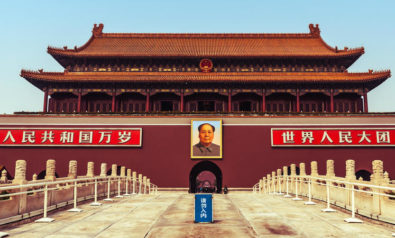






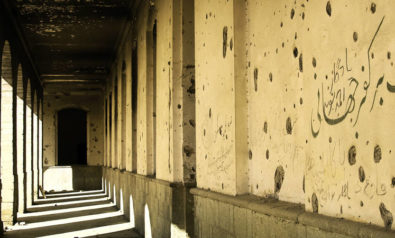

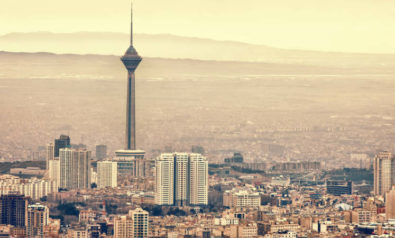
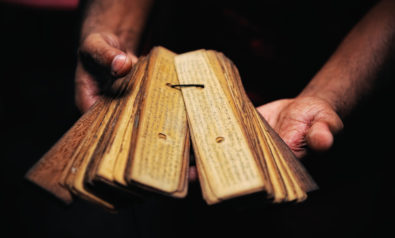

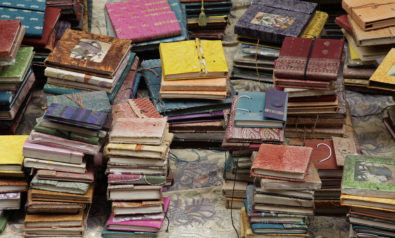


Comment